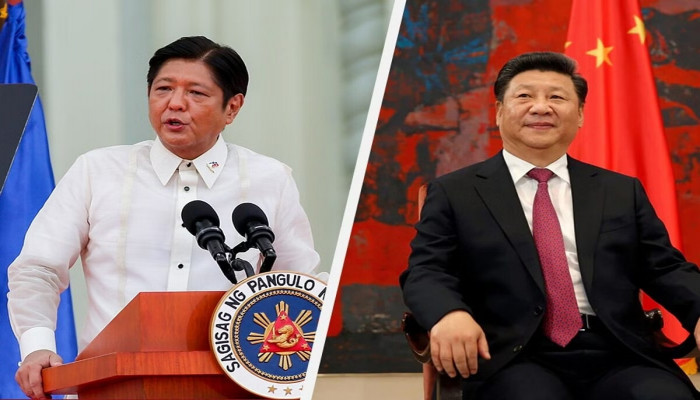Philippines to exit from Belt and Road Initiative
- In Foreign Policy
- 12:00 PM, Nov 03, 2023
- Myind Staff
In a significant move with geopolitical ramifications, the Philippine Department of Transportation has announced the termination of many expensive infrastructure projects under the Belt and Road Initiative in favour of competitors from the West and Japan.
Nearly all of China's major investment projects in the Philippines are currently under question, according to the Philippine Senate, because of both political and economic issues. The result is a new low point in the relationship between the Philippines and China, a sharp reversal from the cordial six years of cooperation during the pro-Beijing administration of Rodrigo Duterte.
China's diplomatic outreach in the Philippines under President Duterte was criticized for being "pledge trap" diplomacy, in which the country offered significant investments in return for concessions in the South China Sea. However, the vast majority of these promised $24 billion in infrastructure projects failed to materialize.
The apparent departure of the Philippines from the BRI is rooted in deep bilateral issues over contested territories in the South China Sea. The Marcos Jr. government most recently voiced its concern at China's intimidation of Philippine patrol missions and resupply missions on and around the Second Thomas Shoal, where Manila keeps troops stationed on a grounded ship.
Following a recent collision between Chinese and Philippine sea vessels, US President Joe Biden made it clear that, in accordance with the terms of the Philippine-US Mutual Defence Treaty (MDT), America will retaliate against any attack on Philippine ships, aircraft, or soldiers stationed in the South China Sea.
Just days after the collision, Philippine Transportation Secretary Jaime Batista announced that the Philippines is scrapping $4.9 billion worth of Chinese big-ticket infrastructure projects, involving two railway projects on the northern island of Luzon and another on Duterte’s home southern island of Mindanao.
“We have three projects that won’t be funded by the Chinese government anymore. We can’t wait forever and it seems like China isn’t that interested anymore,” Batista told a forum organized by European investors in Manila. Instead, the Philippines is now seeking alternative “better” deals from traditional investment partners like Japan, South Korea, the US, and the European Union.
According to Philippine Senator Sherwin Gatchalian, as many as six big-ticket Chinese projects are now being “reconsidered” due to Chinese delays, concerns over lending terms and broader geopolitical frictions.
A number of Chinese projects are expected to be shelved in Manila, including the Mindanao Railway Project Tagum-Davao-Digos segment, the Chico River Pump Irrigation Project, the New Centennial Water Source - Kaliwa Dam Project, the Samal Island-Davao City Connector project, and a closed-circuit television project in multiple cities throughout Metro-Manila.
The Filipino officials expressed dissatisfaction with the perceived exorbitant terms and lack of financial commitment of Chinese-funded projects when compared to Japan's concessional loan programmes. Japan is currently working on several significant "connectivity" projects in the nation's industrialised regions in addition to a multibillion-dollar metro project in Manila.
According to current statistics, China's entire BRI-related operations have decreased by approximately 40% since their high in 2018. This can be partially attributed to legislative obstacles and financial fragility in different recipient nations, as well as Beijing's dwindling financing.
According to a recent Boston University study, "many of the recipients of Chinese finance are subject to significant debt distress," despite the fact that China's development finance institutions gave partner states over $331 billion between 2013 and 2021.
By some accounts, China spent as much as $240 billion to bail out BRI recipient nations on the verge of bankruptcy, most dramatically in the case of Sri Lanka and increasingly in Pakistan and Laos.
Heightened China-Philippine sea tensions have coincided with a virtual collapse in bilateral investment deals. Beijing continues to enjoy a substantial advantage in two-way commerce between the two neighbours, but almost all of the infrastructure investment commitments Beijing made during the Duterte administration are now in peril.
This shift in the Philippines' approach to the BRI reflects not only geopolitical considerations but also concerns over China's economic slowdown, property market crises, and challenges associated with investments abroad.
Image source: Swarajyamag
Disclaimer: The opinions expressed within this article are the personal opinions of the author. MyIndMakers is not responsible for the accuracy, completeness, suitability, or validity of any information on this article. All information is provided on an as-is basis. The information, facts or opinions appearing in the article do not reflect the views of MyindMakers and it does not assume any responsibility or liability for the same.







Comments